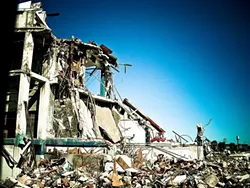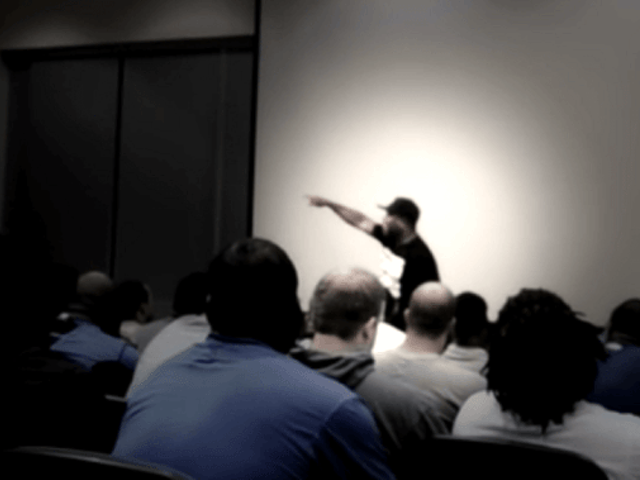
Audio By Carbonatix
[
{
"name": "GPT - Leaderboard - Inline - Content",
"component": "35519556",
"insertPoint": "5th",
"startingPoint": "3",
"requiredCountToDisplay": "3",
"maxInsertions": 100,
"adList": [
{
"adPreset": "LeaderboardInline"
}
]
}
]

Dave Sizer/Flickr
Since October, the Detroit Land Bank — which oversees the city's blight removal efforts — has come under increased scrutiny, as those like reporter Charlie LeDuff have questioned the organization's bidding practices and the the ever-increasing prices for demolitions since Mayor Mike Duggan came into office. (Under Mayor Dave Bing, it cost an average of $10,000 to demolish a house, while under Duggan, the price has gone as high as $20,000 in some cases.)
The FBI probe follows a number of other investigations into the program. In October, following a WJBK-TV report by LeDuff, Detroit City Council called for an audit of the Detroit Building Authority and land bank’s demolition activities, and Detroit Auditor General Mark Lockridge was sent a federal subpoena late last month for demolition-related records dating back to Jan. 1, 2014 from the Office of the Special Inspector General for the Troubled Asset Relief Program. The subpoena came weeks after Lockridge and his team released findings from a month-long audit into the Land Banks' demolition process. In it, potential conflicts of interest between city officials and the Detroit Building Authority's executive leadership were raised.
The Land Bank, which oversees the demolition of blighted buildings and auctioning of abandoned and foreclosed homes, was created in 2008; however, it wasn't until Duggan took office in 2014 that its influence in the city surged. That year, the organization, which is in charge of deciding which buildings to demolish, received an influx in federal dollars from the the "Hardest Hit" fund. While the money was originally earmarked to help families hit by the economic and housing crisis, a portion of the $498.6 million grant was re-appropriated to the Detroit Land Bank for demolitions. Prior to the grant, the city was razing between 1,000 to 2,000 buildings a year. After gaining access to the funds, demolitions nearly doubled in the city, with 3,500 buildings razed in 2014. As the the News reports, "Since January 2014, more than 8,600 houses have come down in Detroit under the Duggan administration’s demolition program. The vast majority of the city’s demolitions — more than 6,000 — have been paid for with federal Hardest Hit Fund dollars."
It is also during this time period that the the increase in demolition costs occurred. Figures increased from an average of $13,600 per house in 2014 to $16,400 in 2015.
While Duggan has previously gone on the record attributing the rising costs in demolitions to new environmental standards, the escalating prices are just one part of the equation. Questions about the Land Banks' bidding practices have also been raised.
In October 2015 the Michigan State Housing Development Authority, who monitors demolition costs, pushed for an internal review of the Land Bank after noticing unusually high costs in the second quarter of 2015. The review, which MT received through a Freedom of Information Act request, noted that 97 construction companies applied in the first and second round of HH funds and the lowest bid was selected 58 percent of the time.
While the state agency has since said it didn't find "any glaring or significant problems," the document (seen below) does indicate that in Round 1 there was a push to go with the more costly choices.
"The bid selection sample that was reviewed show that the lowest bidder was not selected as the winning bid in multiple instances, 40 out of 59 bid (68%), and instead a verbal determination was used that cannot be duplicated or verified," the report's authors wrote about their review of Funding Round 1.
It was indicated that the Land Bank's rationale for not selecting the lowest bid was that those bidders lacked "capacity" to perform the work. While this is a valid reason and something that must be taken into consideration, it is also likely something the FBI and others will be reviewing.
Review of Detroit Land Bank's Bid Selection Process Relating to Hardest Hit Funds by Allie Gross





